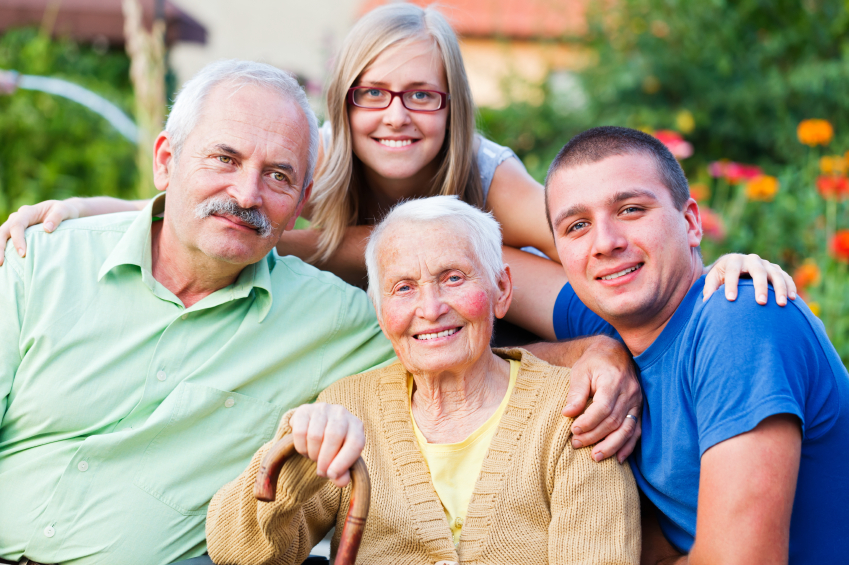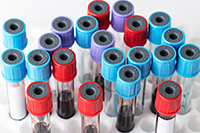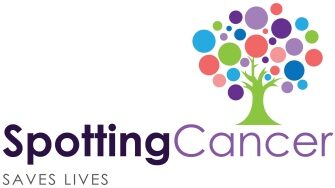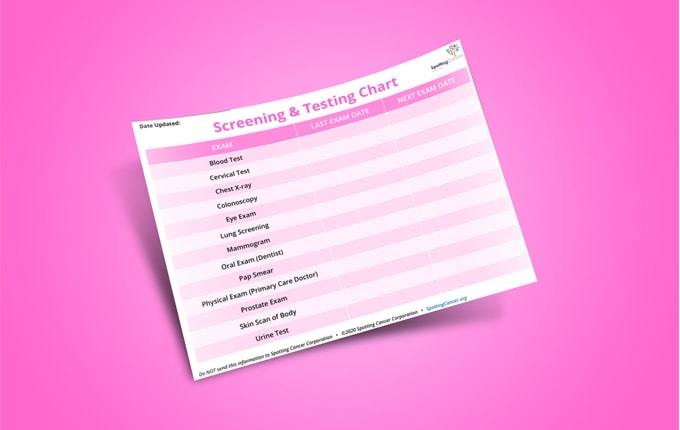Genetic Testing & Counseling (78, 106)
Cancer screening & testing helps you #SpotandSurvive

Today’s genetic tests may be totally different from tomorrow’s tests. Genetic Testing is use of medical tests to look at mutations in a person. In this section the discussion is limited to genetic testing for cancer and mainly to determine if certain hereditary inherited mutation “genes” may pass from one blood relative to another that could impact one’s potential risk for a disease.
Download Our Spot and Survive Guides Free Now!
Learn the signs to potentially save yours and your family’s life.
Screening Methods: (81)
It’s important to note that NO genetic test can report with 100% certainty that a person will or will not develop cancer. About 5 to 10% of all cancers are inherited. Keep in mind that genetic testing is not for everyone. It involves many ethical, legal, and social issues that require careful consideration. Therefore it should be made in collaboration with a person’s entire family as well as their doctor and genetic counselor. Be sure to ask your medical team what are typical of criteria in determining who should have genetic testing.(40 , 43)
How to Proceed:
- Complete the Cancer Family History Chart. This is critical in assessing the pattern of cancer in your family.
- Discuss the chart with your primary medical doctor and have him refer you to a genetic counselor.
The Test:
Undergoing genetic testing involves sampling a body fluid usually blood. The sample is sent to a laboratory that specializes in genetic testing.
Why Genetic Testing:
About 5 to 10% of all cancers are inherited. This means that specific hereditary genes are passed from one blood relative to another. Until you are tested, it is nearly impossible to determine which bracket you fall into.
Individuals who inherit an abnormal gene will greater chance of developing cancer within their lifetime and at an early age. Genetic testing can help a person understand the cause of cancer and the risk of developing cancer in the future or passing it on to their children.
Genetic testing is a personal decision that should be made in collaboration with a person’s entire family as well as their doctor. Keep in mind that genetic testing is not for everyone. It involves many ethical, legal and social issues that require careful consideration.
By having a genetic counselor evaluate your family history, you can make a more informed decision about whether genetic testing may be appropriate for you and your family.
Genetic Screening Questions:
Genetic counseling is highly recommended if you answer yes to any of the following:
- Do you have a close relative that was diagnosed with cancer at an early age?
- Do you have more than one blood relative that has had the same type of cancer? If yes, is the same cancer found in more than one generation or multiple cases in your family?
- Has anyone in your family had more than one type of cancer other than basal or squamous skin cancers?
- Has anyone in your family had cancer on both sides of their organs? This includes the breasts, kidneys and eyes.
- Are you related to someone who is known to have an inherited a genetic mutation that can cause cancer?
Impact of Genetic Testing:
Before being tested, be sure you have a complete understanding of the risks involved and your reasons for wanting a test. It is also helpful to think about how you will cope with the results.
To relieve uncertainty. Testing information may relive the anxiety and uncertainty of not knowing your gene status. For some people, knowing is better than not knowing.
Testing may cause depression, anxiety or guilt. If a person receives a positive test result (meaning a mutation exists), it may cause anxiety or depression about the possibility of developing cancer. Some people may think of themselves as sick, even if they never end up developing cancer. If a person does not have a mutation but members of their family do, they may experience feelings of guilt.
The Results:
The results may help determine whether members of your family face higher risks for certain types of cancer. They can also help with the diagnosis, treatment and/or future management for all family members. Test results will also assist your medical team in developing a monitoring program for early detection and treatment should any family member be diagnosed with the disease.
Spot Cancer
Get reminder emails, tips, and resources to develop your spotting cancer habit when you join the Cancer Detection Squad

Take Action
Regular screening & testing is necessary to to spot cancer before it’s too late. Talk to your doctor or medical provider today to learn what cancer screening & testing is right for you.
you can
when you download and use our guides
Get the Screening , Genetic Testing & Counseling
Download the guide to help you understand how Genetic Testing work and learn the best time to schedule for a screening. Share with your friends and family to help raise awareness on the importance of early cancer detection.
Get the Screening & Testing Scheduling chart
Download the interactive Screening & Testing Scheduling chart to help you keep track of important screening and testing schedules. Download today!
Save a Body Monitoring and Screening & Testing schedule
Regular monitoring and testing is a life-saving habit. Save a Body Monitoring and Screening & Testing schedule to your Google Calendar or iCalendar to stay on track!
You're on Step 5

Step 1:
Signs & Symptoms
To monitor yourself for early cancer detection, you must know the cancer signs and symptoms. A listing of the various signs and symptoms are just a click away.

Step 2:
Body Monitoring
Cancer grows 24/7. Therefore, you must monitor your body to detect any abnormality between regular doctor visits or screenings. The tools and methods are described in this section.

Step 3:
Family History
Knowing and charting your family medical history will help your medical team as they develop a long-term wellness program suited to your unique needs.

Step 4:
Medical Team
Cancer is not self-healing. Therefore, when spotting a cancer sign or symptom, consider it a red flag that should cause you to consult your medical team immediately to determine if it is cancer or another illness.

Step 5:
Screening & Testing
Not all cancer signs and symptoms are visible. You should establish specific times for the various cancer screening and tests with your medical team.



